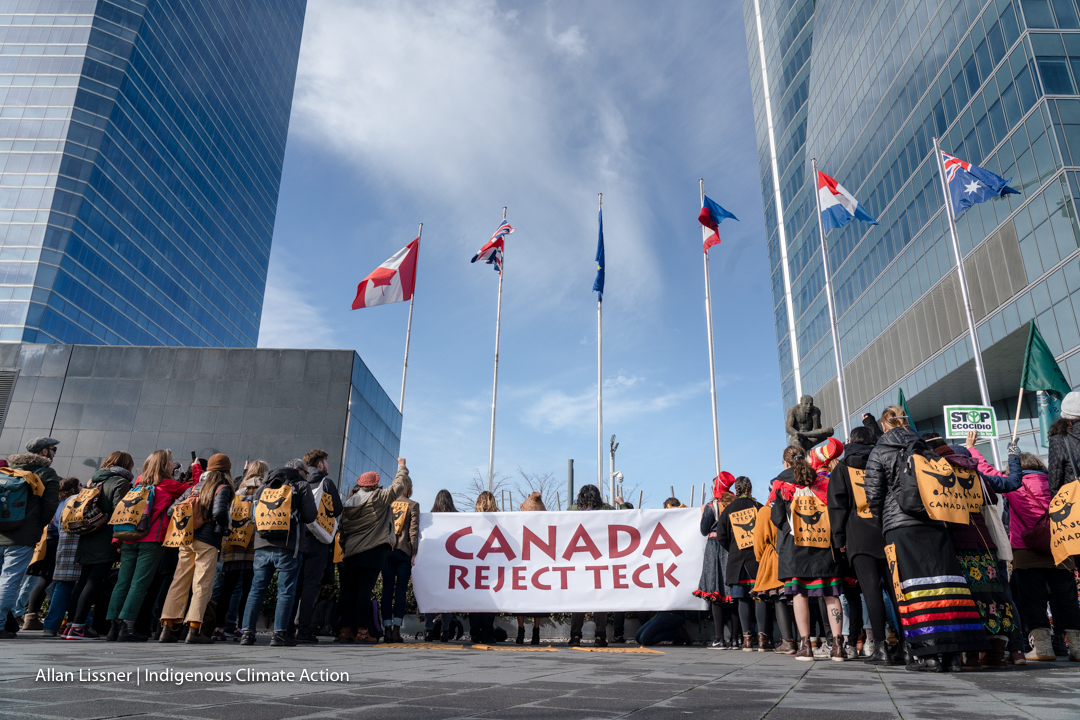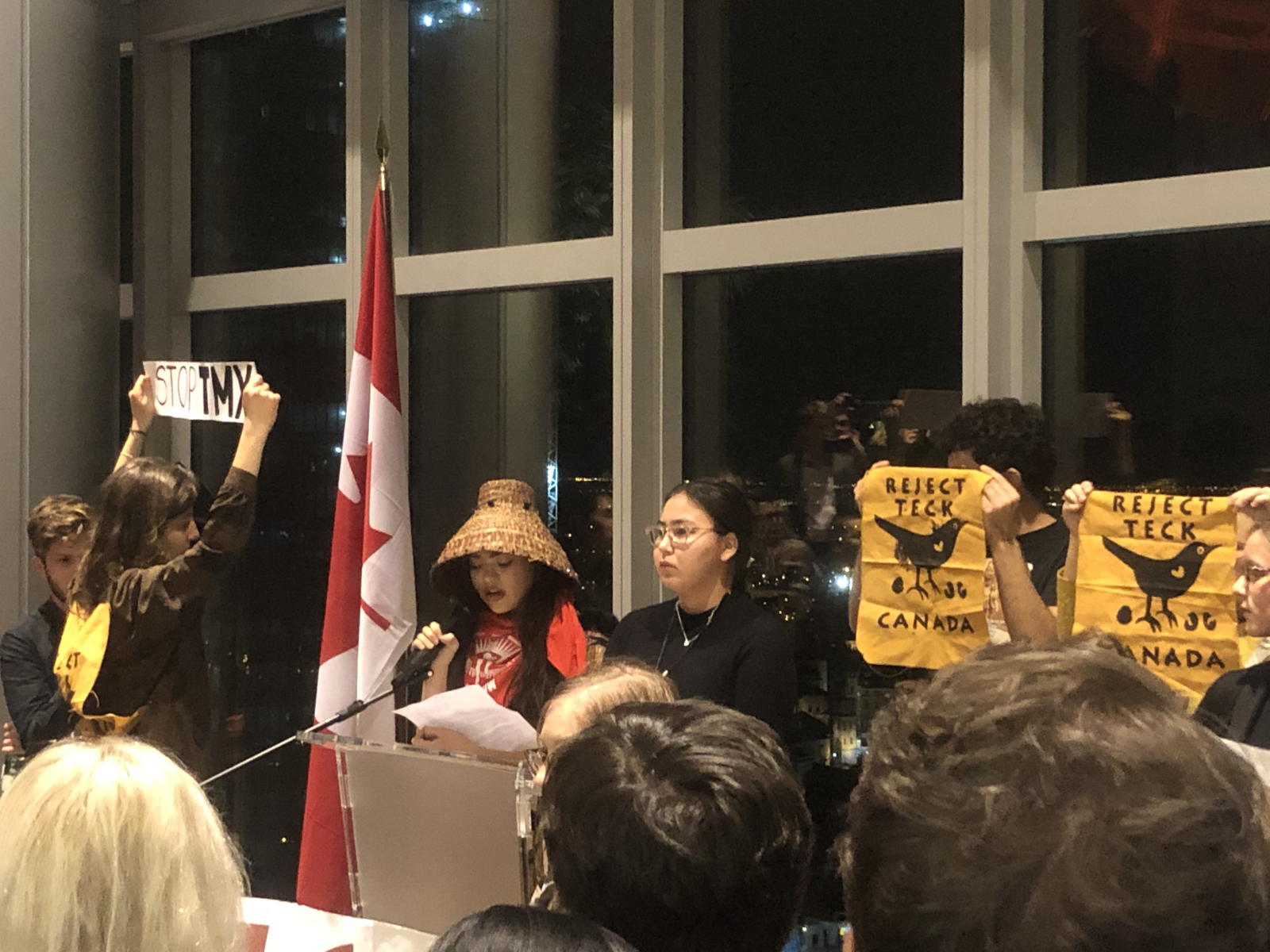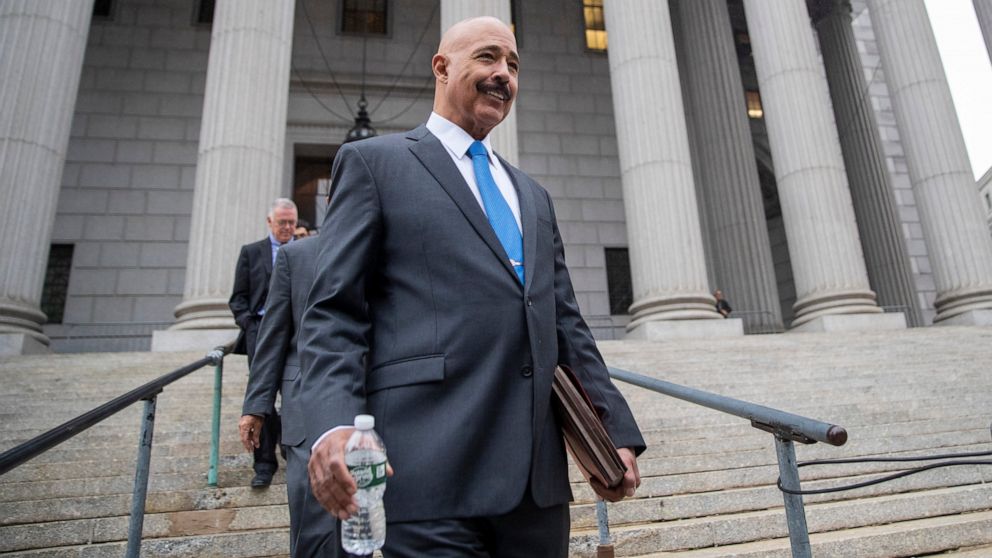EU, island nations and others want big polluters to pledge bigger emissions cuts
A person carries their luggage past a sign of the UN Climate Change Conference in Madrid, Spain, on Saturday. (Nacho Doce/Reuters)
Major economies resisted calls for bolder climate commitments as a UN summit in Madrid limped toward a delayed conclusion on Saturday, dimming hopes that nations will act in time to stop rising temperatures that will devastate people and the natural world.
With the two-week gathering spilling into the weekend, campaigners and many delegates slammed Chile, presiding over the talks, for drafting a summit text that they said risked throwing the 2015 Paris Agreement to tackle global warming into reverse.
“At a time when scientists are queuing up to warn about terrifying consequences if emissions keep rising, and school children are taking to the streets in their millions, what we have here in Madrid is a betrayal of people across the world,” said Mohamed Adow, director of Power Shift Africa, a climate and energy think-tank in Nairobi.
The annual climate marathon had been due to conclude on Friday, but dragged on with ministers mired in multiple disputes over implementing the Paris deal, which has so far failed to stem the upward march of global carbon emissions.
Call for bolder pledges
Long-time participants in the talks expressed outrage at the unwillingness of major polluters to show ambition commensurate with the gravity of the climate crisis, after a year of wildfires, cyclones, droughts and floods around the world.
The European Union, small island states and many other nations had been calling for the Madrid decision to signal that the more than 190 countries participating in the Paris process will submit bolder pledges to cut emissions next year.
If big economies such as China, India, Japan, Brazil, Australia and others fail to agree more meaningful climate action soon, then scientists say already slim hopes of averting catastrophic temperature rises will all but vanish.
‘Strong message’
Although no advanced economy is yet on track for the kind of action scientists say is needed to steer the climate onto a safer path, all the EU’s 28 member states, bar Poland, agreed in Brussels on Thursday to target net zero emissions by 2050.
Krista Mikkonen, Finland’s environment minister, speaking on behalf of the EU, told the talks it would be “impossible to leave” without agreeing a “strong message” on the need to redouble pledges to cut emissions next year.
Ministers broke into groups on Saturday for 11th-hour negotiations on a tangle of issues, including finance for climate-vulnerable countries, carbon markets, and the all-important issue of the strength of the summit’s final text.
Climate change activists hold banners after unloading a truck filled with horse manure in front of the UN Climate Change Conference in Madrid on Saturday. (Nacho Doce/Reuters)
With the clock ticking, Andres Landerretche, Chile’s summit co-ordinator, said the goal was to conclude on Saturday. “The vast majority of delegations are asking for a more ambitious text, and that’s what we’re aiming at,” he told reporters.
Campaigners had said a draft text circulating earlier was among the worst they had seen at climate negotiations.
“The approach Chile has taken on this text shows how it has listened to the polluters and not to the people,” said Jennifer Morgan, executive director of Greenpeace International.
The Paris process has been weakened by a move by U.S. President Donald Trump to begin withdrawing the world’s largest historical emitter from the agreement last month, making it easier for other big countries to backslide. SOURCE
RELATED:


 That means our elected leaders need to reject dirty fossil fuel projects, like the TransMountain pipeline and the Teck Frontier Mine, and begin building a made-in-Canada Green New Deal that upholds Indigenous rights, centers racial and migrant justice, and creates millions of decent jobs for all.
That means our elected leaders need to reject dirty fossil fuel projects, like the TransMountain pipeline and the Teck Frontier Mine, and begin building a made-in-Canada Green New Deal that upholds Indigenous rights, centers racial and migrant justice, and creates millions of decent jobs for all.  PS – Each Member of Parliament only needs to receive 25 petition signatures in support of a Green New Deal in order to speak to M-1 in Parliament. That means you could take action as easily as circulating a petition at your office holiday party or a family dinner.
PS – Each Member of Parliament only needs to receive 25 petition signatures in support of a Green New Deal in order to speak to M-1 in Parliament. That means you could take action as easily as circulating a petition at your office holiday party or a family dinner.  Protests against Canada in Madrid, Spain. Dec. 11, 2019. Photo by Indigenous Climate Action / Allan Lissner
Protests against Canada in Madrid, Spain. Dec. 11, 2019. Photo by Indigenous Climate Action / Allan Lissner




 United Nations Secretary-General Antonio Guterres speaks during the U.N. Climate Change Conference (COP25) in Madrid. Reuters
United Nations Secretary-General Antonio Guterres speaks during the U.N. Climate Change Conference (COP25) in Madrid. Reuters

